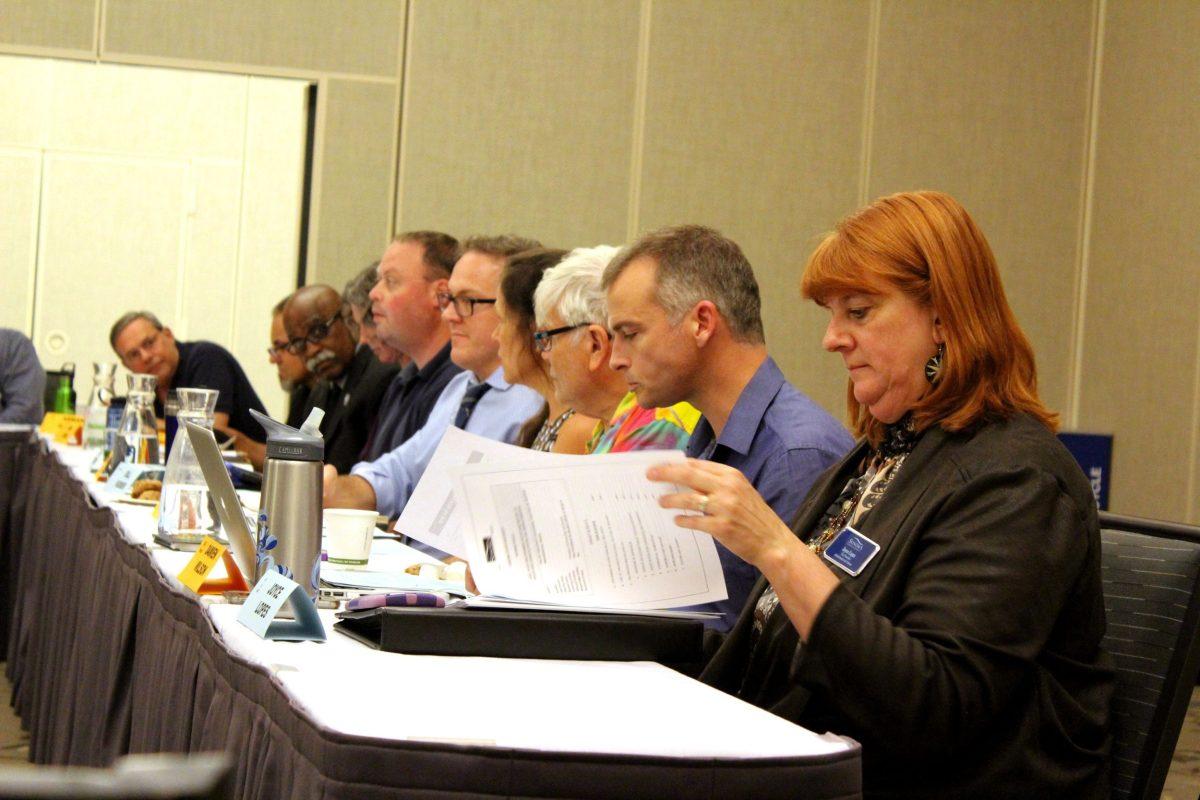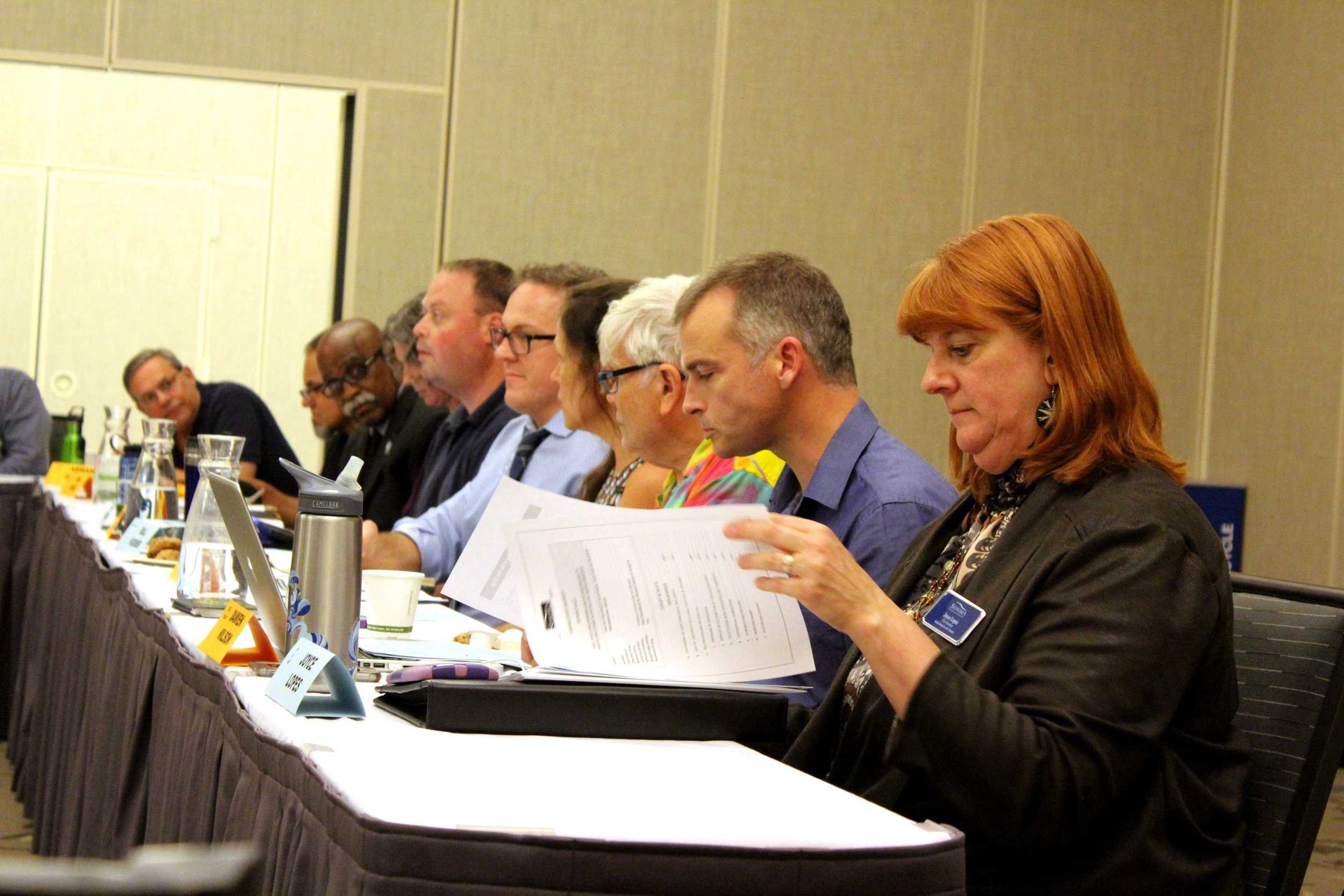The Sonoma State University Academic Senate will take a hard stand against new directives from the California State University system’s Chancellor Timothy White that cap GE credit for students at 48 and drop placement tests as well as math and English remedial courses.
Executive Order 1100 changes GE in Areas A-E from four units to three units. Four-unit classes are allowable but the school must provide enough three-unit courses to offer students if they choose to complete just three-unit classes. These classes can still double count towards major requirements but those requirements could stay at four units, which would leave each student one unit shy during the double count.
“This is a disadvantage to students and it will extend time of degrees,” said Melinda Milligan, professor of sociology.
During its meeting Friday, senate members reviewed and edited a draft resolution to send to White stating the executive orders are not in the best interest of students and their ability to graduate. Some members of the senate reported that fellow faculty members have discussed leaving for other schools during “hallway discussions.”
“Faculty is talking and talking about walking to other campuses where they won’t have to deal with this,” said Sakina Bryant, lecturer of English and philosophy.
The draft resolution states concerns involving the fall 2018 deadline for the orders’ enactment, inadequate consultation resulting in significant curricular changes, and impact on lecturers. The resolution calls for the chancellor to rescind the executive orders and allow flexibility and autonomy to each campus to preserve the distinctive aspects of general education programs.
“We are not concerned, but we object,” said Joshua Glascow, assistant professor of philosophy.
The senate will edit the draft resolution with suggestions made from senate members and will revisit it at the next Academic Senate meeting on Sept. 28.
“The Student Senate fully supports and will adopt the same resolution,” said Jason Gorelick, executive vice president and chair of the board of the Associated Students Senate.
In a statement sent out earlier this month, the California Faculty Association demanded to“meet and confer” over the executive orders not for their content, but rather because these changes “directly impact the faculty and our working conditions.” The current collective bargaining agreement requires CSU management to hold talks with the union over the terms of such changes.
“The need is to zero in on the lack of consultation and the lack of shared governance,” said Victor Garlin, emeritus faculty.




































